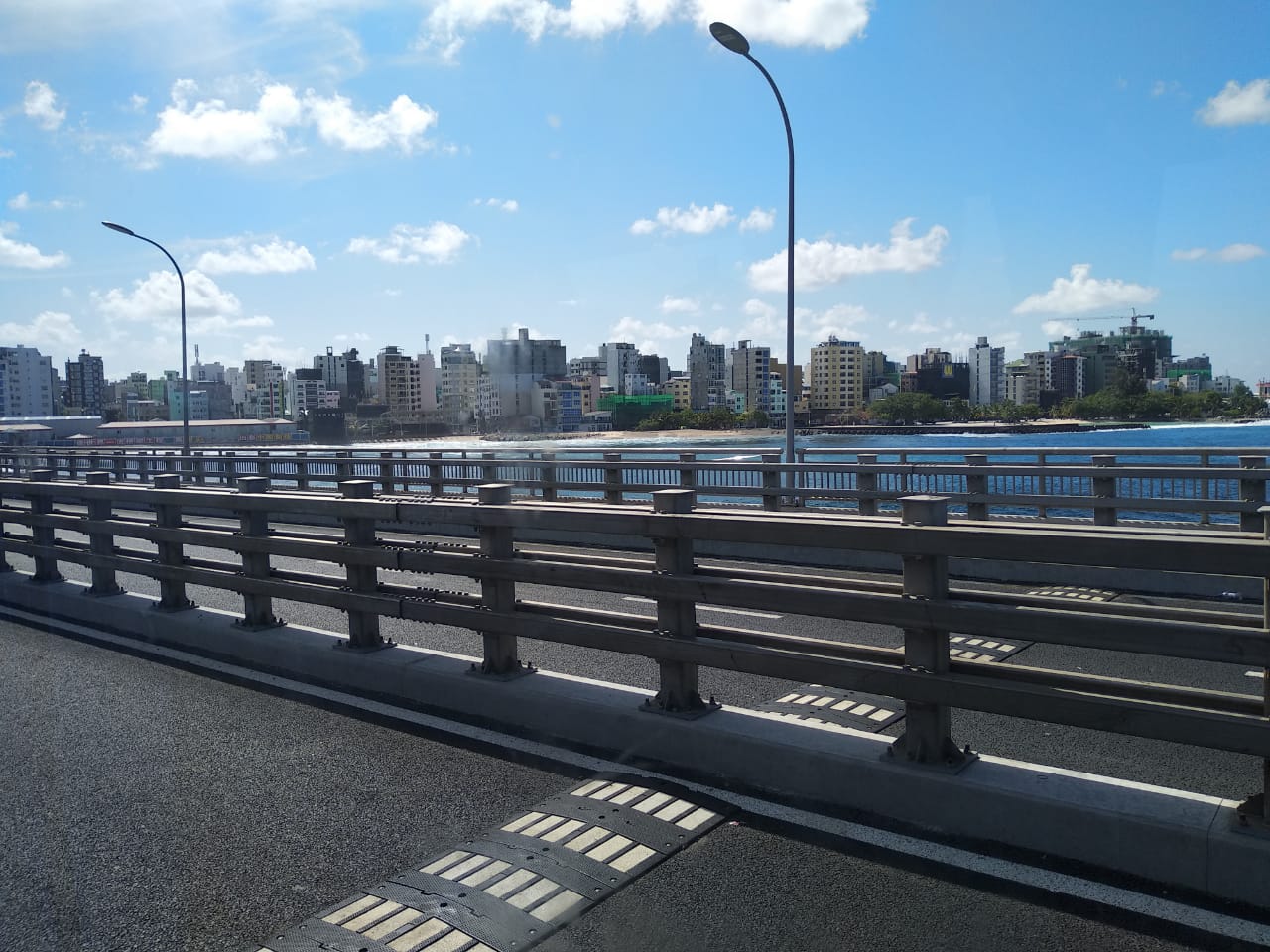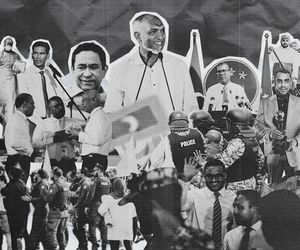Confusion, collisions and congestion: Sinamalé Bridge gets off to a wobbly start
Accidents, a bike ban and propaganda have marked the bridge opening.

13 Sep 2018, 09:00
It was meant to embody the relationship between China and the Maldives, while also serving the everyday transport needs of people living in the capital and its suburb island Hulhumalé.
But the $200 million Sinamalé Bridge, which opened less than a week ago to the public, has caused controversy with sky-high taxi fares and bike bans as well as confusion over bus services. There has even been blood, following several accidents.
After a week of festivities – including a million dollars worth of fireworks, five weddings, bike rallies, marches and music events – the bridge opened for traffic last Friday evening.
It was no coincidence the housing minister opened the bridge for traffic at the start of a weekend. Fridays see thousands of Malé dwellers and expats flee the heaving capital to enjoy a few hours of peace and quiet on Hulhumalé, with crowds normally packing out the MTCC ferry terminal in Malé.
Become a member
Get full access to our archive and personalise your experience.
Already a member?
Discussion
No comments yet. Be the first to share your thoughts!
No comments yet. Be the first to join the conversation!
Join the Conversation
Sign in to share your thoughts under an alias and take part in the discussion. Independent journalism thrives on open, respectful debate — your voice matters.




